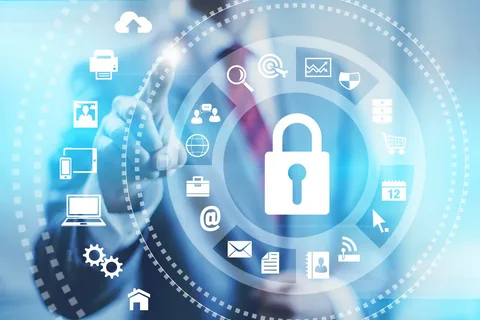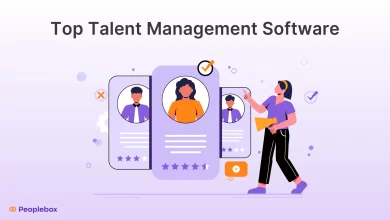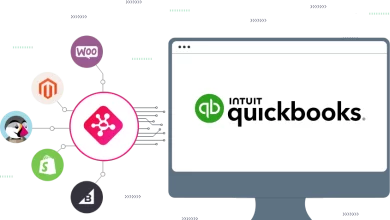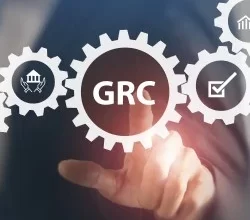Internet and Social networks: KNOW THEIR BENEFITS, RISKS AND HOW TO PROTECT YOURSELF

The Internet and Social networks are our daily lives, they have entered the lives of millions of people of different ages, they are changing the way we interact with others, no matter where they are, as long as they have an Internet connection.
These resources, in addition to relating, allow us to meet people and reach people we don’t even know physically, to see what is happening in the world, reach various sources of information, share, and learn. It is important to know their advantages and disadvantages, as well as knowing how to use them appropriately and knowing which Social networks are the most used.
The Internet is a Social network or set of computers connected to each other that receive, accumulate, and send information, that is, it is the technology that allows us to enter pages, view, create, and send information in various formats. Also, due to the great variety of mobile applications, these must be progressively reinvented.
Generalities of the Internet and Social Networks
More than half of the world’s population has access to the Internet, the population of South Asia and Central Africa is the least contacted, but at the same time they are the regions that are rapidly increasing access. It is estimated that this increase worldwide is because increasingly cheaper internet plans and smart mobile devices are being created.
Social networks are platforms that allow Internet users to create accounts to share, send and receive and view information in various formats such as images, text, audios, videos, and create events. It offers and keeps users in communication with known and/or unknown people.
Among the most used Social networks in cyberspace are: Facebook, YouTube, WhatsApp, Instagram, Tiktok, LinkedIn, Snapchat, Pinterest, Twitter among others.
Every Internet user creates their accounts voluntarily and also decides what information they share and with whom they share it.
Benefits of the Internet and social networks
The Internet and Social networks can help us:
Instant communication
The ability to instantly connect and communicate with friends and family around the world is one of the greatest benefits of the Internet and social media. Whether through a phone call or video call, users can stay in touch with important people in their lives regardless of the geographic distance that separates them.
Educational enrichment
The Internet also offers a wealth of online educational resources. Users can access free online courses, tutorials, and resources to improve their skills and knowledge in areas such as programming, digital marketing, photography, and more. These resources can be especially helpful for people who do not have access to in-person educational resources.
Empowerment and citizen participation
The Internet and social media have also changed the way people engage in politics and civic life. Citizens can use social media to express their opinions, share information, and organize to support a common cause. This has been especially important in social movements like Black Lives Matter and #MeToo.
Development of professional networks
Social media is also useful for developing professional networks. Platforms like LinkedIn allow users to connect with colleagues and professionals in their fields to share information and knowledge. This can help professionals find employment opportunities and improve their career prospects.
Access to global information
The Internet is an important source of global information. Users can access news from around the world in real time, allowing people to be informed about events happening around them and in the world. Additionally, users can find information on any topic they want, from cooking recipes to medical information.
e-commerce
E-commerce has grown enormously thanks to the Internet. Consumers can purchase products and services online from the comfort of their homes, which has made shopping more convenient than ever. Furthermore, e-commerce has opened new opportunities for small businesses and entrepreneurs who can sell their products globally.
Mental health support
The Internet and social media have also been shown to be helpful in supporting mental health. People can find resources online for managing stress, anxiety, and other mental health issues. Additionally, social media can provide a space to connect with others who may be going through similar circumstances.
Leisure
The Internet and social networks offer a wide variety of entertainment options for users. From watching movies and series online to playing video games and reading articles online, the Internet offers endless entertainment options. Social media is also a source of entertainment and can be used to share funny memes, photos and videos with friends and family. Additionally, social media can also be a way to discover new activities and events in your area.
Locate and move
GPS technology is a fundamental tool in modern navigation. Mapping and navigation applications found on mobile devices allow users to locate their position in real time and find routes to their desired destination. Social media can also be useful for discovering new places and events in a specific area.
To send email
Email is a fast and efficient way to communicate online. Users can send and receive emails in seconds, making it a valuable communication tool for work and personal life. Additionally, email can also be used to share important files and documents.
Process banking transactions
The Internet and social media have changed the way people manage their finances. Most banks offer online banking services that allow users to make financial transactions such as transfers, bill payments, and deposits online. This makes it easier and more convenient to handle money without having to go to a bank branch. En özel ve reel kızlar Beylikdüzü Kapalı Escort Zehra | İstanbul Escort Bayan sizleri bu platformda bekliyor. Additionally, social media has also been used to create new forms of online payment, such as PayPal.
Internet and social media risks
It is important to know their risks and know how to use them safely. Among the risks are finding information, as well as false profiles, identity theft, loss of privacy, and even if you “delete” and do not view it, a publication you made remains complete on the network.
Cyber bullying
Cyberbullying is a growing problem online and can have a significant impact on the emotional and mental health of victims.
Internet addiction
Internet addiction is becoming an increasingly common problem in modern society. The ease of access to information and the need to always be connected can lead users to spend long hours online, which can negatively affect their personal and professional lives.
Leaking of personal information
Leaking personal information online is a common risk that can have serious consequences for users. Companies and social media platforms collect personal information from users, such as their name, date of birth, address, and other important details. If this information is leaked or used without the user’s consent, it can be used for identity theft and other types of fraud.
Online deceptions and scams
Online deception and scams are common and can affect anyone. Scammers use clever techniques to trick users into obtaining personal or financial information. These online scams can include phishing emails, fake job offers, and fake websites that look authentic.
Inappropriate content
The Internet and Social networks may contain inappropriate content that may be harmful to users. This content may include violent or sexual images, hate speech, and extremist content that may be harmful to the mental and emotional health of users, especially young people.
How to avoid risks on the Internet and Social networks
The Internet and Social networks are powerful tools that can offer a large number of benefits to users. However, they also pose several risks, such as cyberbullying, internet addiction, personal information leaks, online hoaxes and scams, and inappropriate content. Below are some recommendations on how to avoid risks on the Internet and Social networks.
Maintain privacy
It is important to maintain online privacy to prevent leakage of personal information. Users should ensure that their personal information such as their name, date of birth, address and other important details are protected online. Social networks have privacy options that allow users to limit who can see their personal information and posts.
Use strong passwords
Passwords are an important part of online security. Users must use strong, unique passwords for each online account. Passwords should be long and contain a combination of letters, numbers and symbols. Additionally, it is recommended to enable two-factor authentication on all accounts to increase security.
Be alert to deception
Online scams and scams can be difficult to spot, but there are some red flags to look out for. Users should be careful when clicking on suspicious links or downloading files from unknown sources. They should also pay attention to phishing emails, which often appear legitimate but attempt to trick users into revealing personal or financial information.
Stay informed about cyberbullying
Cyberbullying is a serious problem online and it is important that users are informed and know how to identify and prevent it. Users should be alert to any inappropriate online behavior, such as aggressive messages, insulting comments, or offensive posts. They should also know how to report and block harassers on social media and other online platforms.
Limit time online
Internet addiction can be a real problem and can have negative effects on mental and physical health. Users should limit their time online and avoid spending long hours on social media and other online sites. It is recommended to set time limits and spend time on offline activities, such as sports, hobbies, and spending time with friends and family.
Use online security software
Online security software is a valuable tool that can help protect users online. Users should use antivirus and firewall software to protect their devices from malware and other online attacks. They should also make sure to keep their software updated for the best protection against new online threats.
Be Selective About Online Connections
It is important to be selective with online connections and avoid connecting with unknown people. Users should be careful when accepting friend requests on social media and avoid sharing personal information with unknown people online. They should also avoid connecting to unsecured public Wi-Fi networks and use a virtual private network (VPN) to protect their online connection.
By knowing these tools, Social media platform options and applying these tips you will have a better guarantee of enjoying cyberspace and Social networks






